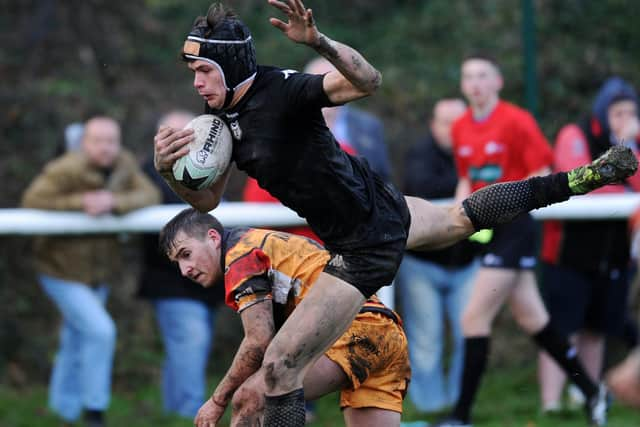North American expansion brings benefits but still leaves questions unanswered – Peter Smith


Now, New York is on the verge of becoming the third North American club to join the Rugby Football League (RFL), after Toronto Wolfpack and newcomers Ottawa Aces who will be part of Betrfed League One from next season.
The American city has yet to secure a place in the RFL structure, but will stage next Monday’s Coral Challenge Cup sixth-round draw and New York Rugby League plan to put a professional squad together to play exhibition matches next year, when they will also enter the knockout competition.
Advertisement
Hide AdAdvertisement
Hide AdAs developments go, they don’t get much more unlikely than a sport which, in this country, has struggled to break out from three northern counties at professional level booming in North America. But is it a good thing?


There is always the argument rugby league should look after its own backyard before – or instead of – expanding into others’.
On the other hand, this year marks the sport’s 125th anniversary and it remains lightly regarded in terms of sponsors, media appeal and widespread support.
Toronto Wolfpack are in only their fourth season and what has been achieved during that time is incredible.
Advertisement
Hide AdAdvertisement
Hide AdThey have been promoted twice, signed one of the world’s most famous rugby players, of either code, and averaged crowds of 6,988 last year in the Championship, which was better than top-flight clubs Wakefield Trinity, Huddersfield Giants, Salford Red Devils and London Broncos.
The majority of those spectators would not have been watching – or even have heard of – rugby league a few years ago, so Wolfpack have grown the sport’s support base, as well as bringing in invaluable publicity.
Wolfpack have had considerably more resources than most of their rivals in the lower divisions, but any extra money coming into the game should be celebrated, rather than regarded as an unfair advantage. Toronto are struggling this year, without a Super League win after six rounds, but by no means cast adrift and, once they begin playing home matches, they will pick up some points.
Ottawa Aces – technically a relocation of the Hemel Stags club – have ambitions to follow Wolfpack into the top division and, apparently, will have similarly deep pockets.
Advertisement
Hide AdAdvertisement
Hide AdThey will provide Wolfpack with some ‘local’ competitions – the distance between the cities is 212 miles – and bring more fans into the game, but a trip to the Canadian capital won’t be easy, financially or logistically, for part-time teams from rugby league’s third tier.
Like Toronto, Aces will rely on players from England and Australia to fill their squad and, certainly in the case of this country, that means spreading the available talent even more thinly. Though Wolfpack this week re-signed Canadian international Quinn Ngawati, who played for them in 2017, it will be decades before players born in North America begin to come through and make their mark.
London and the south of England are now producing some Super League-quality players, but the game has been on the go there far longer than it has in Canada. Even with all this going on, the game has yet to truly decide whether it wants a trans-Atlantic presence.
Toronto don’t receive central funding, pay towards opposition travelling costs and operate under the same salary cap and ‘overseas’ – ie, non-European – quota as the rest of Super League.
Advertisement
Hide AdAdvertisement
Hide AdTheir coach Brian McDermott has called for some of those rules to be relaxed for development clubs, something their rivals would have to approve.
With another close relegation battle looming, it would be a brave move by any team in the bottom half of the table to vote in favour of Toronto being able to up their spending.
With potentially three North American clubs operating next year, the ultimate aim must be for a professional competition based on that continent, similar to union’s Major League Rugby.
Until then, the arguments over a trans-Atlantic competition will continue, despite the obvious benefits.
Comment Guidelines
National World encourages reader discussion on our stories. User feedback, insights and back-and-forth exchanges add a rich layer of context to reporting. Please review our Community Guidelines before commenting.